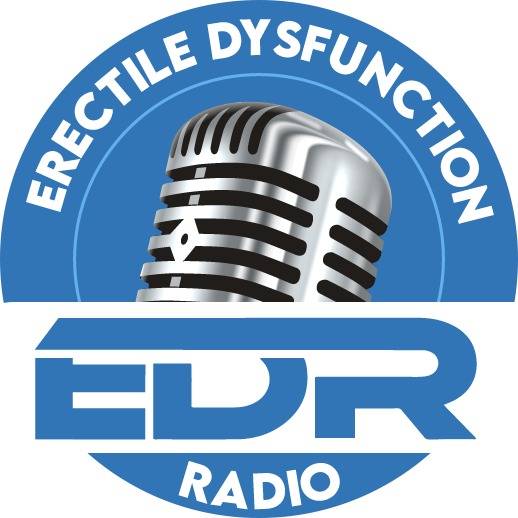
Listen to Long-Term Relationships and Erectile Dysfunction through the podcast player above.
Erectile Dysfunction Radio Podcast
Today’s episode of the Erectile Dysfunction Radio Podcast is about erectile dysfunction and its impact on couples in long-term relationships.
We dedicate this podcast to educating and empowering men to address erectile dysfunction, improve confidence, and enhance the satisfaction in their relationships. This podcast is hosted by certified sex therapist, Mark Goldberg, LCMFT, CST.
Transcript of Episode 45 – Long-Term Relationships and Erectile Dysfunction
Casey: I’m Casey the podcast producer here, today I’m going to be interviewing Mark, our traditional podcast host here at E.D. Radio, about long-term relationships and the impact that they can have on erectile dysfunction.
Many couples in long-term relationships may be struggling with this very issue. How to keep the spark alive? How do you keep the excitement alive of that time period when you first met your spouse or your partner in your relationship? Mark, I’m sure this is an age-old issue, so how should couples deal with this?
Mark: If I could answer that question over the short period of time that we have on this podcast, I would be very, very busy working with couples, and I would have published a couple of books by now.
As you’ve identified, this is an age-old issue and it is a challenging one. This is common, very common, and I encourage couples to recognize that this is not an indication of some fundamental breakdown in the nature of your relationship. This is not necessarily a sign that something has gone terribly wrong and the two of you have grown apart.
I believe that this is a challenge that most, if not all couples will encounter in long-term relationships, so I want to first say without necessarily mentioning how to deal with this, this is not a sign that your relationship is falling apart.
At the same time, if these patterns persist and are causing one or both people in the relationship to feel distress, it can lead to further problems.
Casey: How do changes over time such as appearances, maybe even personality traits, how do these changes within a relationship, impact sexual health and ultimately erectile dysfunction?
Mark: Every relationship is different and how exactly changes in appearances, personality traits and the like, how exactly these things impact human sexuality, and ultimately erections and erectile dysfunction is difficult to say. As a general statement, what seems pretty clear is that over time, things that we have found attractive in our partners, don’t really captivate us in the same kind of way.
Things that one time we thought were attractive, cute, adorable, are the things that end up annoying us and causing us frustration and agitation, why exactly this happens, I cannot say, but this does seem to be the pattern as couples go through their relationship.
This seems to be a very common progression, unless work is being done on the relationship to keep things in a positive direction.
If a man begins to feel a fading of attraction toward his partner, it’s understandable that gaining and maintaining an erection in a partnered setting is going to be more challenging
Casey: As a therapist, where would you start working with a couple in a long-term relationship that was dealing with erectile dysfunction?

Mark: This is an interesting question, and one that I would say is somewhat evolving. I think there are different approaches that different therapists who work with men and couples who are experiencing sexual dysfunction take.
My current stance is when I encounter a couple, or a couple wants to come in to see me, and a man is experiencing erectile dysfunction is, I actually will work with the man individually for that initial assessment.
Like we’ve covered on this podcast, many, many times, erectile dysfunction is complex. A lot of times people make that initial phone call to me and they’ve already assumed that they know what the problem is; I’m not saying that they’re necessarily wrong, but a lot of times that initial evaluation is incomplete and what’s actually happening for a man is not fully understood.
I find it most helpful to initially meet with an individual. If I have met with a man and it seems like the relationship is playing a significant role in maintaining the erectile dysfunction, because a lot of times it is not the initial cause, but it’s maintaining the erectile dysfunction, then I would shift to incorporating the partner into a broader evaluation and treatment process.
A lot of times it starts with making very, very specific suggestions for the couple to try, providing very limited information, if the couple has broader challenges in their relationship that seemed to be inextricably connected to what is driving at or maintaining the erectile dysfunction, we potentially would have to shift to a more intensive and more emotionally-based type of therapy to help the couple resolve not only the erectile dysfunction, but some of the broader issues in their relationship as well.
Casey: What other causes of erectile dysfunction in long-term relationships, might there be, that we haven’t covered yet?
Mark: So first and foremost, longer-term relationships also mean that both parties are aging and age is a factor when it comes to erectile dysfunction.
Not so much in terms of just the aging process necessarily, but health conditions do develop over time, some that are easily detectable and others that are not. One of the initial challenges is just physical changes and physical issues that impact erections, that’s first and foremost.
There are a number of issues that we haven’t mentioned that do come up in long-term relationships, so you mentioned losing the spark, so couples will report that they feel bored, they feel stressed, there’s fading of attraction, development of routines that help to avoid sexual activity, sometimes awkwardness comes in.
There’s a number of challenges that couples face as their relationships develop, I know that it feels counter-intuitive, or it seems counterintuitive, because one would assume that as a relationship  progresses the comfort should increase, but a lot of times actually is the reverse.
progresses the comfort should increase, but a lot of times actually is the reverse.
People and couples develop habits that actually keep them a little bit more distant from each other when it comes to some of these sensitive topics, and then it becomes much more difficult to talk about and repair later down the road.
Casey: Perhaps living together in a small apartment or home was much easier when couples both didn’t work from home, of course, with the changes because of Covid, we’ve seen a lot more work from home happening, so how does all this time together impact sexual health, erections and the like?
Mark: So for some couples, it will be a positive, it will create an opportunity where they have more time to spend together, time that they have not been able to find in years prior.
However, I do recognize that for a lot of couples, they will struggle or they have been struggling with their sexual relationship, perhaps in ways that they have not struggled with in the past.
One of the most obvious components is if one or both members of a couple working outside of the home, prior to the pandemic, there is a real diffusing of any tension, a tension that occurs when one party leaves.
A lot of times what I’ve found is couples will be able to have a difficult conversation prior to parting ways, somebody will make mention of a frustration or something that’s bothering them five minutes before they head off to work, and that allows to message to their partner that something isn’t right, but also not have to engage in the intensity and then the awkwardness and the discomfort that ensues.
Now that people are home, all day together, it becomes a lot more difficult because if you bring up a topic which is uncomfortable, which is unsettling, a lot of times there’s nowhere to go, you’re living in the same small apartment, you’re going to be together for the next eight hours of the work day.
There is no escape, which ultimately, I think impacts people’s ability to connect sometimes in more vulnerable ways to talk about sexual challenges, ultimately not being able to communicate about what isn’t working is going to have an impact on how people feel toward each other sexually and for men, can have a significant impact on gaining and maintaining erections when they’re with a partner.
Casey: Do you have anything else to add before we wrap up today’s discussion?
Mark: I would say to both men and their partners, long-term relationships are very meaningful and very rewarding, and they are also very challenging.
If you’ve lost a spark, if things are feeling boring, feeling dull, if libido is low, or there’s some type of sexual dysfunction, that does not mean that all is wrong or lost with your relationship, it means that you may need to do some work with a therapist, or figure out how to reconnect and reinvigorate the relationship, but it does not mean that your relationship has to come to an end or that it has seen its best days and there is nothing to look forward to.
Subscribe to our Podcast
All ED Radio Podcast episodes are available on this website, ErectionIQ.com. You can also find and subscribe to it for free on Apple Podcast/iTunes, Spotify and YouTube.
Ready to Learn More?
To start your in-depth approach to resolving ED, try our online learning course called BEYOND THE LITTLE BLUE PILL, The Thinking Man’s Guide to Understanding and Addressing ED.

Ready to talk to an ED expert? Erection IQ founder Mark Goldberg helps men resolve erectile dysfunction. He offers individual, one-on-one services to men throughout the world through a secure, telehealth platform. It’s 100% confidential. You can visit the Center for Intimacy, Connection and Change website to schedule a free consult with Mark.




